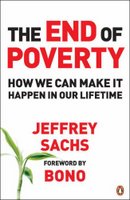Big is the word for Africa's Christians

LAGOS, Nigeria -- It's eight hours into the service, and the congregation is still dancing. Shout, they're told. Yell out to the Lord. Their cries melt into a muggy night with the odor of sweating bodies, jasmine and the tropical musk of the Nigerian bush land.
"Hallelujah," rumbles the head pastor as the church band kicks into a new number. "Hal-le-luuuuuuu-jah." Even from the heights of the pulpit, he can't see the far edges of the crowd. More than 300,000 people have come for the once-a-month, all-night, Pentecostal-style revival, led by a preacher most simply call "Daddy."
Given the standards of the Redeemed Christian Church of God, it's just an average turnout.
Think big. Think very big. Then think bigger.
This is the face of 21st-century Christianity: big, restless -- and African. There is no better symbol of it than the Redeemed Church and the insatiable ambitions of its guiding hand and pastor, the Rev. Enoch Adejare Adeboye. The savvy one-time mathematician leads the fastest-growing Christian movement from a continent that is rapidly putting its stamp on the faith around the world.
The Redeemed Church is a prime lesson in the shifting currents of Christianity. Centuries after the Gospel was brought to sub-Saharan Africa by colonizers and missionaries, the faith is coming back to the West. The forms are passionate and powerful. So potent, in fact, that clergy from Westminster Abbey to the Vatican are fretting about how to keep pace, and the Protestant-dominated World Council of Churches, always wary of Pentecostal and evangelical sects and denominations, is treating these new groups as if they were an invading army.
What began as a living-room Bible study in 1952 is now a juggernaut -- a university, movie studio, satellite television and a wi-fi Internet provider. Now add to that millions of followers in more than 90 nations, including footholds in China and even Dallas. Recently, close to 1 million worshippers turned out during three days of sermons and healing services to coincide with the birthday of Mr. Adeboye (A-day-BOY-ye), who turned 64 but maintains an athlete's physique and a few touches of gray in his hair.
In a rare interview, Mr. Adeboye explained where he hopes to go from here -- "At least one member of the church in every household in the whole world."
The dream, however improbable-sounding, has some genuine underpinnings. There's no bigger draw in Christianity at the moment than the century-old Pentecostal movement and its offspring, which can differ in styles of worship but share beliefs in the active presence of the Holy Spirit to heal and bestow other life-altering gifts.
The broad Pentecostal/charismatic/evangelical family accounts for about a quarter of the world's nearly 2.2 billion Christians, according to the Center for the Study of Global Christianity in South Hamilton, Mass.
The Redeemed Church claims 5 million followers in Nigeria and 250,000 abroad. Mr. Adeboye has set a goal of 50 million -- roughly the size of the entire Assemblies of God fellowship (another, older Pentecostal group) around the world. In the United States, 7,000 people attended the Redeemed Church's annual conference last year in New York's Madison Square Garden.
"This church has a tremendous strength and credibility with Nigerians at home and abroad," said Allan Anderson, professor of Pentecostal studies at the University of Birmingham in Britain. "Can it translate to non-Nigerians? This is the big test." The old religious mainstays in Nigeria -- the Roman Catholics and Anglicans -- are overshadowed nearly 2 to 1, and Pentecostals and other evangelicals widen the gap year after year.
That mass popularity is just what unnerves the established pillars of Christianity. No one knows how deeply the Pentecostal-inspired churches will change the faith. They only are sure that it's happening, and Africa is the engine.
The Vatican's main envoy for Christian unity, Cardinal Walter Kasper, summed up the concerns at a major conference on the faith's future in February. How, he asked, can churches deal with movements that have no unified theology and "very aggressive" strategies?
He had no clear answers. Instead, the nearly 4,000 delegates went home to their congregations with an image provided by the host World Council of Churches: The demographic center of Christianity is located now near Timbuktu, Mali, in northwestern Africa, and drifting south each year.
From The Washington Times







